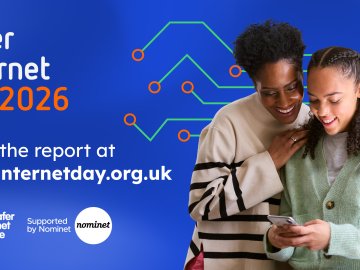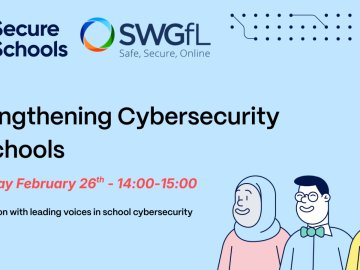As children increasingly use technology to stay in touch, ensuring the safety of young people in online spaces is essential. Many young people look to social media to communicate easily with friends and family, and safety-focused apps designed specifically for young people and families are becoming increasingly popular, promising to better protect young people from online harm.
One app that the Professionals Online Safety Helpline has seen gain popularity with young people and families is Stars, which states it provides a ‘private and safe kids messenger app that allows you to text and video chat with your family and friends without getting spammed by strangers or bullies’. Learn more about how Stars works, and how to use it safely below.
What Is Stars?
Stars is a private messaging platform tailored for children and families, with a PEGI 3 rating. It enables users to send messages, photos, videos, and voice recordings without requiring a phone number or access to a device’s address book. Stars also lets users message and video chat in small private groups. With features like customisable fonts and vibrant emojis, it claims to create a fun, interactive experience while maintaining a safe place for kids to message.
What Safety Features Does Stars Have?
Stars states it is a safe option for young people, it has a host of different safety features to help ensure that young people can avoid harmful content, strangers, and spam whilst messaging. The app says it is ‘safe by design’ stating that ‘Instead of searching for people to add, users need their friend’s username as well as their unique private Friend Code.’
Key Safety Features Include
Friend Code Connections
To add a friend on Stars, both the username and unique Friend Code are required. This is meant to ensure that only trusted individuals can contact users. The Code can be reset anytime, making it nearly impossible for unwanted contacts to repeatedly send requests.No Searchability
Unlike many messaging apps, Stars does not allow users to search for others by name or username.No Access to Address Books or Phone Number
Stars does not require a phone number or upload access your phone’s contact list, ensuring that external parties cannot use your contact data. Stars does not require a SIM card and can be easily used on various Tablets.Private by Default
Unlike some platforms that require manual adjustments to become private, Stars ensures that profiles are kept private.Parental Control
Parents can monitor their child’s interactions through the optional “Parent View,” which allows parents to see and receive notifications about their child's friends, the groups they’re in, and the time they’ve spent on the app. Parent View also allows parents to easily view the messages and media that their child is sending and receiving.
Managing Friends on Stars
To add a friend on Stars, users will need their friend code and username, and any friend request can be declined if the user feels unsure. If a user receives a request from someone they don’t know, they can reset their friend code to stop any further requests from that user. Users will not be able to message each other until they’ve been added.
Stars claims to make sure that young people can remain in control of their friends list easily, and Stars friends can be deleted at any time. Once the person has been deleted, users will be prompted to reset their friend code so that they will no longer be able to add or get in touch with the user again.
Joining Groups on Stars
Joining groups on Stars is similar to adding other users. To join a group, users will need to share the group code and group number with whoever they want to add. You can also join a group by using an invite link from the group admin.
Admins can reset group code at any time, and once in a group, all users can do group calls and chat together. Stars also lets a user leave a group “silently” if they choose so, and only friends can add you to a group.
How to Use Stars Safely
As with any social media app, it’s important to know how you and young people can use the app safely to avoid online harms. It’s always good to protect your privacy and minimise the amount of personal information on your profile. Here are some key steps to using the Stars app safely, and ways to keep you or your child's personal information secure:
Setting Up Accounts
It can be a good idea to set up accounts using nicknames or first names to maintain anonymity and to avoid using full names and dates (like your birthday) within your username.Resetting Friend Codes Regularly
With Stars, you can reset your Friend Code whenever you want. To take extra precautions, you can reset your Code after adding a new contact to limit potential misuse. It’s important to keep the Friend Code private and only share it with trusted individuals.Monitoring Usage
Parents can use ‘Parent View’ to oversee account creation and guide young people on safe digital communication habits.Reporting Harmful Behaviour - If a user receives a harmful message on Stars, it can be reported by holding down a message and selecting what type of harm it involves.
Discussing Online Behaviours
It’s always good to educate young people on how to look after themselves online and the importance of protecting personal information.
Safety Considerations
When chatting with users on Stars, it’s important to remember that they can send you messages, videos, voice notes and video clips whenever they want. Currently, Stars does not seem to have filters to limit content and images that may be inappropriate or harmful before they are sent.
If you do receive a harmful message on Stars, users can report any message or photo for being harmful by pressing down on the content they wish to report, this includes abusive and bullying behaviour, spam, and inappropriate content.
When chatting on Stars, it’s important to remember that messages and images can be forwarded to other contacts. Additionally, any images or videos shared in a chat can be screenshotted or saved to that user's device. This means it’s important to make sure that users only share messages and content that they are comfortable with potentially being shared or saved outside of their conversation.
Staying Safe on Social Media
As with any social media platform, there are always considerations to make to decide whether an app is right for you and the people in your care. To learn more about staying safe across social media apps, you can visit SWGfL’s Online Safety and Social Media Hub, which guides you on everything you need to know about social media and how you can raise awareness around online safety.
Visit the SWGfL Social Media Hub
Accessing Further Advice as a Professional Working With Young People
Any professional working with young people can contact the Professionals Online Safety Helpline by emailing helpline@saferinternet.org.uk or calling 0344 381 4772. The helpline is open Monday to Friday, 10am to 4pm, excluding bank holidays.
No matter what online safety concern you are having, the Professionals Online Safety Helpline will do their best to support you. To get in touch for further advice, remember to always provide as much context as you can, including:
How you/your school/organisation is responding.
What steps have been taken to address the concern so far.
What further advice you would like, or how we can best support you.
Contact the Professionals Online Safety Helpline
*This article was written in collaboration with Stars






